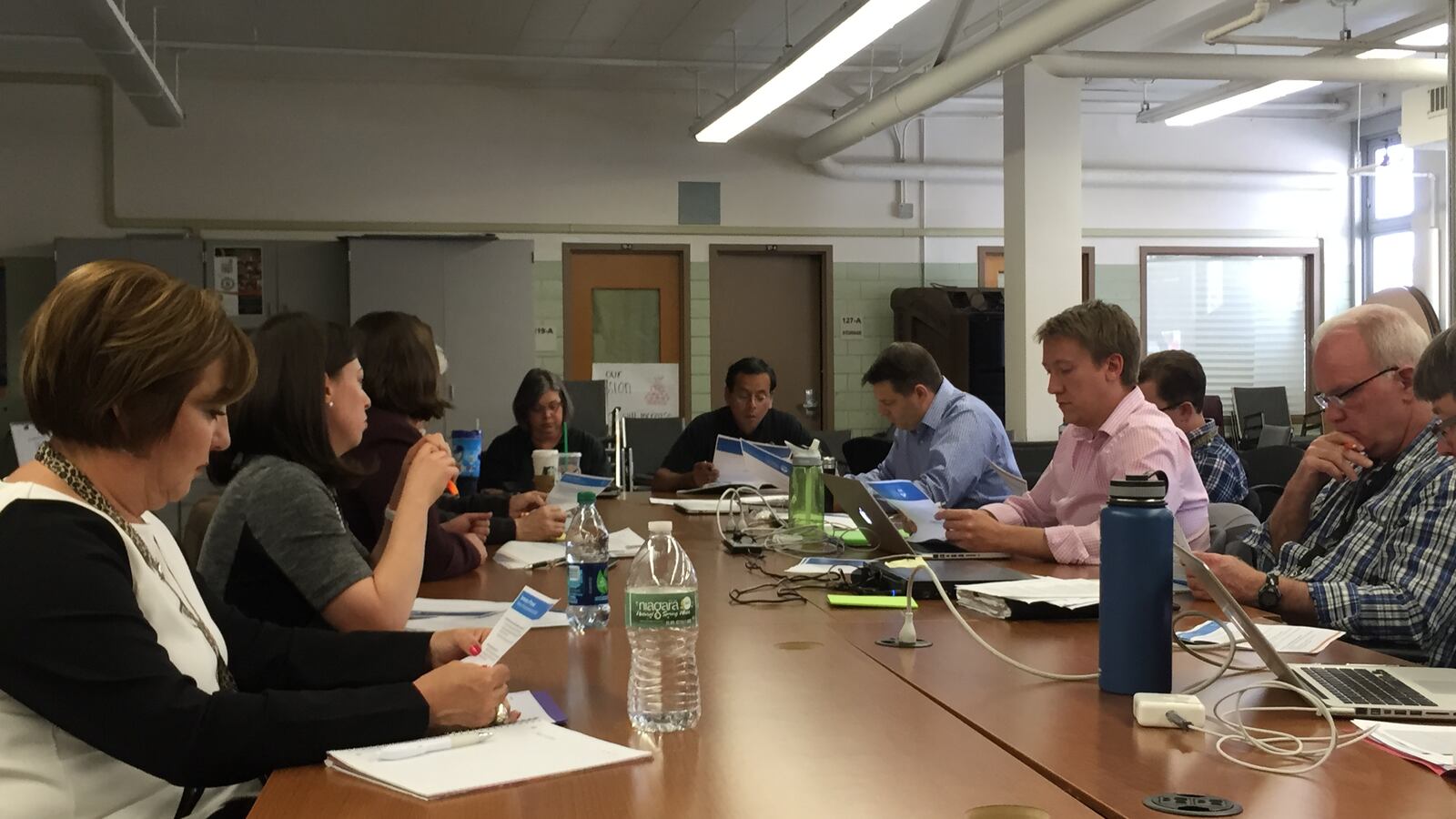Negotiations between Denver Public Schools and the Denver Classroom Teachers Association about adjustments to ProComp, the district’s 10-year-old taxpayer-funded teacher incentive pay system, stalled again Thursday.
The union and district officials have not reached an agreement about how much needs to change in this round of negotiations, which was initially aimed at extending and tweaking the current ProComp system before a larger redesign of the program later this year.
In March, district officials proposed a set of changes that include shifting more bonus money to teachers in high-needs and hard-to-serve schools, tying one incentive to teachers’ evaluation score instead of directly to test scores, and altering several other incentives to reflect changes to the state’s new standardized tests.
This week, the teachers union proposed that the current incentive structure remain largely intact until the larger redesign work starts later this fall, with the exception of some adjustments due the switch in assessments. It also proposed that the union’s contract with the district be extended until 2019. The proposal suggests that additional funds for teachers in high-needs schools come from a pot of money the district might have if a bill currently being considered in the state legislature passes.
A study group this fall recommended that the ProComp should tie incentives to teachers’ career progression, be simpler and easier to understand, and that the next agreement should increase incentives for teachers in high-needs schools. In a report released in January, the district said that it had found the current incentives are not attracting and retaining teachers, especially in high-needs schools.
Union officials say they are expecting information from a laundry list of data requests to the district about who would be affected by the changes early next week.
The district and union plan to meet again next week. This is the first round of bargaining sessions between the district and union that is open to the public, after a state law requiring open meetings was approved by voters last fall.


